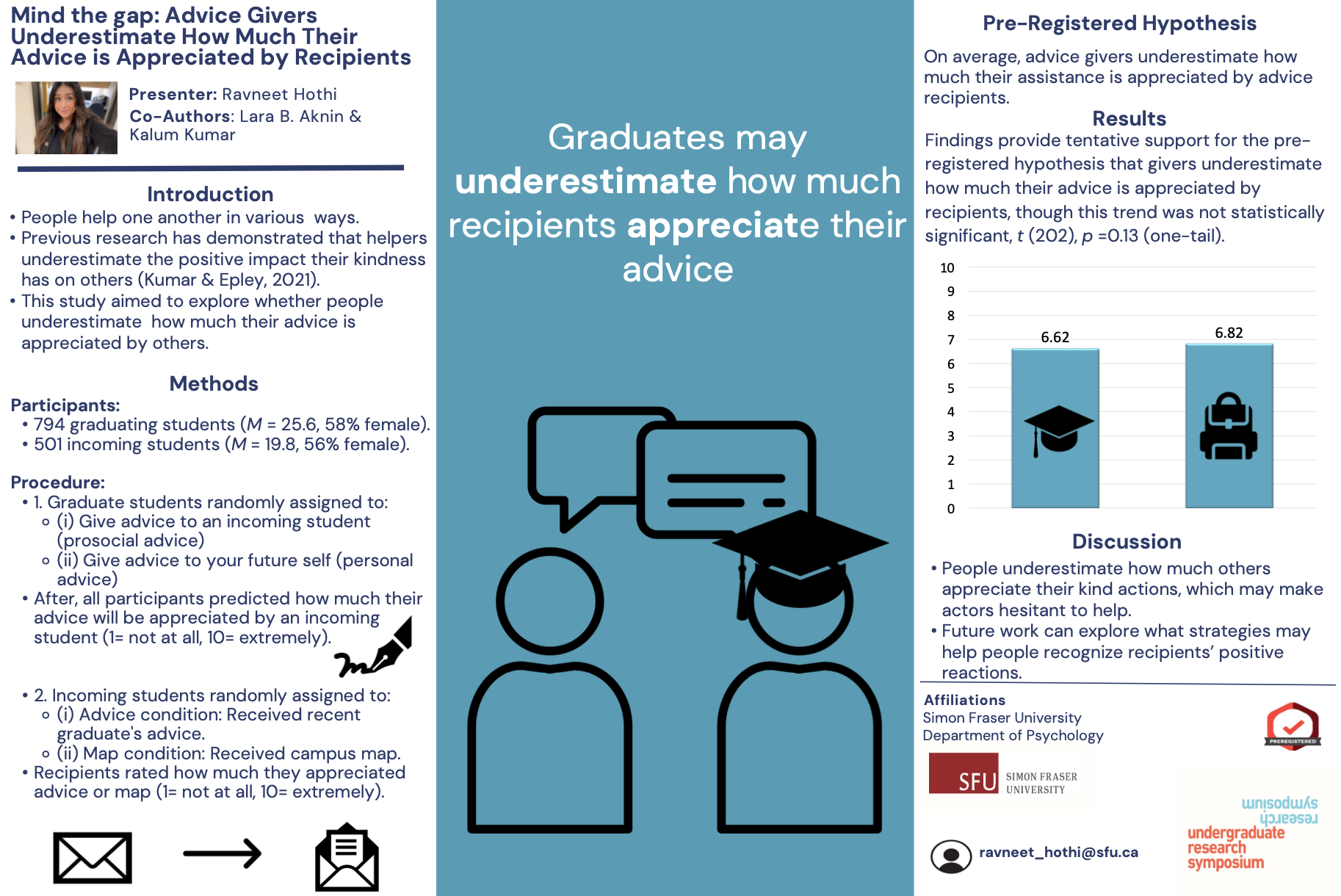Mind the gap: Advice givers underestimate how much their advice is appreciated by recipients.
Main Article Content
Abstract
People often give advice to others, but are they able to predict how much the recipient appreciates the advice? To explore this question, we conducted a pre-registered study in a common and meaningful context: starting university. In the Summer of 2022 and 2023, Canadian university students on the cusp of graduation were asked to give advice to an incoming university student, and then estimate how much this advice would be appreciated (1 – not at all to 10 – very much). Then, several months later, we gave each piece of advice to up to three new university students. Each advice recipient rated their appreciation on the same scale (1 – not at all to 10 – very much). To understand the appreciation gap, we compared the givers predicted and recipients’ actual appreciation scores. However, findings provided tentative support for the pre-registered hypothesis that givers underestimate how much advice is appreciated by recipients, though this trend was not statistically significant. Therefore, we incorporated a manipulation check at the end of the survey, asking givers to specify who their advice was intended for. By focusing our analysis on participants who accurately recalled that their advice will be given to a new student, the findings were statistically significant. Given past research demonstrating that peoples’ expectations about how their behaviour will be received influences the likelihood of them engaging in a prosocial act. These findings suggest that people may not offer advice as frequently as they could due to the misestimation of recipient appreciation.
Faculty Supervisor: Dr. Laura Aknin, Department of Psychology, Simon Fraser University
Article Details

This work is licensed under a Creative Commons Attribution-NonCommercial-NoDerivatives 4.0 International License.

